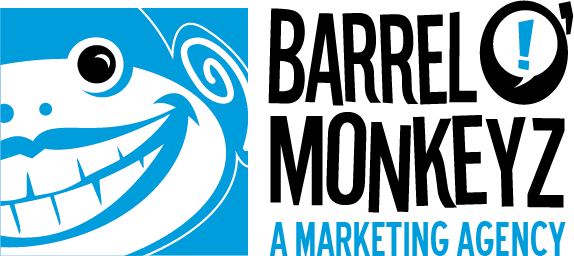I hurt my back recently and the outpouring of support from friends, family, and colleagues has been amazing. THANK YOU everyone for your well wishes and your empathy. At times like these, I often like to step back and see if there’s some underlying message I only have to open my eyes and mind to receive.
What’s amazed me during this little adventure is how practically everyone has an opinion on how I can get better, what treatment choices I should make . . . you name it! And what’s even more amusing is that most of this advice—all of which, let me state for the record emphatically, was truly heartfelt, well-intended and sincerely appreciated by me—has been given even when the person offering it didn’t fully understand the nature and extent of my injury.
From acupuncture and physical therapy, to yoga and more, everyone’s advice seems to be based more on the person’s field of expertise or frame of reference than on the specifics of my injury. Naturally, this has me wondering, “How can anyone know where I should be going when they don’t first know where I’m at?”
Now, this King Monkey tries to be very open-minded and I like to think there’s more to medicine than a “one remedy fits all” approach (at least I hope so!). Each situation or patient is different, of course, so determining a cure or remedy requires an astute doctor who can analyze the information at hand and make treatment suggestions based on his or her findings. (Special props go out to Dr. Steve Seizer of Santa Monica Bay Physicians who has successfully kept me healthy for 41 years!)
So I got to thinking about how all of this seemed eerily similar to one of my pet peeves about some of today’s most prevalent marketing and new business development practices—namely, those marketing firms that try to force their latest and greatest marketing tools on clients without first giving thought to what a particular client actually wants or needs. In my “marketing worldview” that approach is a non-starter. Any marketing strategy that does not include a “Discovery Phase” or “Situational Analysis” is no strategy at all, but rather a cookie-cutter tactic designed to maximize the marketing firm’s profits, minimize their efforts, and marginalize the unique qualities and business needs of a particular client.
Like astute doctors, smart marketing firms or consultants—what I like to call the “cream of the crop” or the “top bananas”—take the time to get to know client business needs and properly include “discovery” as part of any marketing strategies. Conducting a situational analysis not only pleases clients, strengthens relationships, and sets proper expectations from the outset, but makes the marketing firm’s job easier and the likelihood of satisfactory outcomes for the client much greater.
How you ask? Through discovery, marketing firms get to understand the nature of a client’s business better, including the overall marketplace and competitors, plus assess client strengths and weaknesses, and effectively define metrics that align with client goals and objectives. With measurable goals and objectives in place, the success or failure of a marketing program is much less subjective and clients can manage their marketing efforts analytically and with greater certainty.
Look at your own business. In what ways do you treat your customers as the unique individuals or firms they truly are? Could you do a better job at it? How might that benefit you and/or your clients?
Now look at your own marketing situation. What are you doing that’s more “one size fits all” than it is unique to your business needs and strengths? How might you benefit from a situational analysis that factors into you marketing the unique qualities you bring to the marketplace?
Share your answers and ideas here.
QUICK HITS
Barrel O’Monkeyz is a proud sponsor of the University of San Diego’s 4th annual “Wine Classic,” a wine tasting fundraiser benefitting student scholars. On the afternoon of July 22, 2012, more than 30 USD-affiliated wineries from throughout California and Mexico will be on hand with more than 50 wines available for sampling. My friend, Kevin Dooley, Associate Director of CCS, is Founder and Chair of the event (http://www.linkedin.com/in/dooleykevin). To become a sponsor or to find out more about the Wine Classic, visit http://www.sandiego.edu/wineclassic/. The first deadline for sponsorship opportunities is March 23. See you there!

your blog site is really awesome! youhttp://www.yugiohrpgonline.net
what do you think of talking about something more interesting.http://www.decolarpassagens.net
good you’re bringing us information.http://www.decolarpassagens.net
i read and understand the entire article and i really enjoyed it to be honest.http://www.revendaautorizada.com
you are a great writer, i hope someday i will write as well as you do.http://www.asusbrasil.com
your blog is very cool.http://www.cinepredador.org
Great blog, Just wanted to comment that i can not connect to the rss stream, you might want install the right wordpress plugin for that to workthat.
Thank you so much regarding giving me an update on this subject matter on your web page. Please be aware that if a brand-new post becomes available or if any adjustments occur on the current publication, I would be interested in reading a lot more and knowing how to make good use of those approaches you write about. Thanks for your efforts and consideration of other individuals by making this site available.
nice thank you for sharing most informative ideas and also your good view.http://www.marmil.org